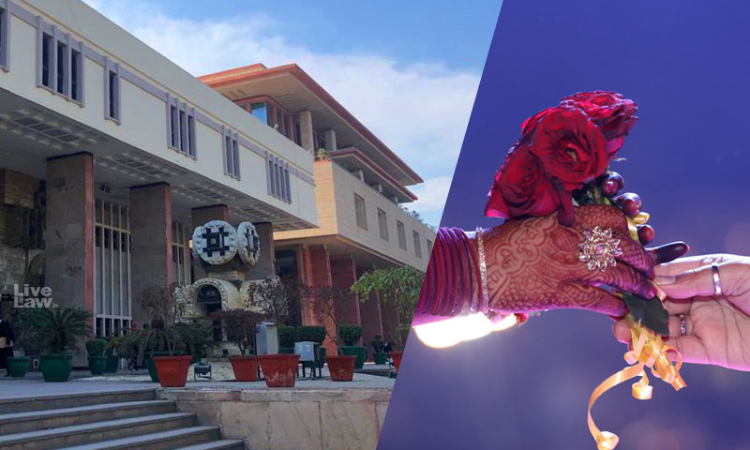- Home
- /
- High Courts
- /
- Delhi High Court
- /
- Hindu Marriage Can't Be Dissolved...
Hindu Marriage Can't Be Dissolved By Signing Marriage Dissolution Deed In Front Of Villagers: Delhi High Court
Nupur Thapliyal
29 Aug 2025 11:15 AM IST
The Delhi High Court has held that a Hindu marriage cannot be dissolved by signing a marriage dissolution deed in front of villagers or “social people and witnesses.”A division bench comprising Justice C Hari Shankar and Justice Om Prakash Shukla said: “We are unaware of any law or principle by which a duly solemnized Hindu marriage can be dissolved by signing a marriage dissolution deed...
The Delhi High Court has held that a Hindu marriage cannot be dissolved by signing a marriage dissolution deed in front of villagers or “social people and witnesses.”
A division bench comprising Justice C Hari Shankar and Justice Om Prakash Shukla said:
“We are unaware of any law or principle by which a duly solemnized Hindu marriage can be dissolved by signing a marriage dissolution deed in front of village persons.”
The Bench dismissed a plea filed by a man, working as a Constable in the Central Industrial Security Force, who faced disciplinary proceedings on the allegation that he had contracted a second marriage while his first marriage was subsisting.
He was dismissed from service for having infracted Rule 182 of the Central Industrial Security Force Rules 2001.
It was his case that his first marriage had been dissolved by signing of a marriage dissolution deed before the persons of the village.
The Bench noted that the fact that during the subsistence of his first marriage, the man contracted his second marriage, could not be disputed.
“The petitioner merely seeks to contend that the first marriage was dissolved by signature of a marriage dissolution deed dated 15 October 2017 before “social people and witnesses”. Needless to say, a duly solemnized Hindu marriage cannot be dissolved in such a fashion,” the Court said.
It added that Rule 18 of the CISF Rules would also cover the case in which a second marriage is contracted by the employee after he or she joined service.
Observing that the man had no defence, the Court said that the case was covered by a division bench ruling in Ex. Head Constable Bazir Singh v. UOI.
“We noted the fact that in Bazir Singh, the punishment imposed was of compulsory retirement. Unfortunately, we cannot even reduce the punishment awarded on the petitioner as he has not rendered the qualifying service for compulsory retirement. We are, therefore, unable to come to the aid of the petitioner. The writ petition is accordingly dismissed,” the Court said.
Title: ASHWANI KUMAR v. UNION OF INDIA & ANR
Citation: 2025 LiveLaw (Del) 1036



